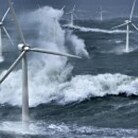To bio or not to bio?
Denne artikkelen er over ti år gammel og kan inneholde utdatert informasjon.
“To [bio] or not to [bio] that is the question:
Whether ’tis nobler in the mind to suffer
The slings and arrows of outrageous fortune;
Or take Arms against a Sea of troubles,”
In this somewhat adulterated version of a soliloquy from William Shakespeare’s play Hamlet, the lead character is
musing as to which is better; inaction and the inevitable pain of life with which he is familiar, or to take action and
the fear of death and damnation which is unknown to him.
Four hundred years later, these words and their interpretation can be well applied to the environmental dilemma
we face today. Society finds itself at a crossroads concerning climate change and the adoption of renewable
energy. The well trodden path leads inevitably to increasing climate change and the other path into the unknown,
where not all implications are known.
In my field of research concerning the life-cycle-assessment of biofuels, I am confronted on an almost daily basis
with this dilemma. On the one side, we are experiencing a push to achieve some level of sustainability in the
transportation sector where the implementation of biofuels is seen as one option and on the other side a growing,
scientifically backed, scepticism to the real benefits and implications of these actions.
When I entered this field of research in 2008, plans were well under way towards establishing national production
of biodiesel in adequate quantities for Norway to achieve its goal of minimum biofuel content in transport. In late
2009, this epoch was effectively concluded when the Norwegian government applied an excise duty on biodiesel.
The government’s decision was based on a growing consensus of the ill environmental and socio-economic
effects imposed by first generation biofuels.
Two important lessons should be gleaned from this and similar experiences; both embodied in one statement
made by John Dewey; “learn to know by doing and to do by knowing”. The first lesson is that without the previous
decades’ global leap into first generation biofuels, we most likely would not have learned anything regarding the
complicated indirect interactions involved, and thereby not realized the necessity to adopt a holistic approach
towards evaluating similar future endeavours. This statement though also reminds us of the second lesson, that
being the responsibility of society and policy makers in that we learn from this experience and try not to make the
same mistakes twice.
Similar to the planet on which we exist, every dusk is followed by a dawn, and we are currently on the brink of
establishing commercial second generation biofuel production. In an attempt to implement those lessons learned
from first generation biofuel, stakeholders are scrutinizing the possible technological, environmental, and socioeconomic challenges posed by this next step. One of the more current debates centres on whether one should adopt short- or long-term time horizons when considering the carbon deficit encountered when one harvests forest resources for biofuel production. The proverbial die is being cast between the opponents in this debate, each posing relevant arguments. There is though common ground on both sides of this debate; that there exists a significant knowledge-gap and a resulting uncertainty.
But how does one make a sound choice concerning the implementation of second generation biofuels when one
will only learn something of all the variables involved after major actions have been taken? Should we jump with
both feet into this developing field of technology, or idle in discussion with the hope that another faultless solution
will present itself? The answer is clearly not black or white, but rather grey and difficult to digest. This middle path,
between the full scale adoption of second generation biofuel, and remaining on course with today’s fossil fuel
consumption entails carefully weighing what we do know with what we can expect and then testing this in
incremental practice. The results of this experience should be equally relevant for both the proponents and
opponents in the Norwegian biofuel debate.
These are by no means easy decisions, and should not be made hastily as personified by Hamlet’s languishing
monologues. Nor will we arrive at one clear decision; should this have been the case, John Dewey would have
formulated two statements and not one combined statement touting both the benefits of action and consideration.
To successfully traverse this third path will require the cooperation and consideration of both the proponents and
opponents to biofuel. The relevance of taking the third middle-way and the dangers of not doing so is well stated
in Sir Edwin Arnold’s the Light of Asia:
“Fair goes the dancing when the sitar’s tuned;
Tune us the sitar neither low nor high,
The string o’erstretched breaks, and the music flies;
The string oerslack is dumb, and music dies.”







